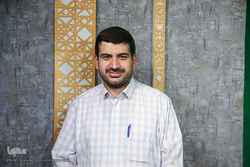Thanking God for A Tragedy


If this tragedy does not lead to the spread of guidance, it would mean that we have not appreciated it enough.
We hold mourning rituals for the Ashura tragedy in order to keep alive the memory of divine figures so that guidance would be spread.
This is what Hani Chitchian, a member of the Quran and Etrat School of the University of Tehran, discussed in the 33rd session in a series on Surah At-Tawbah. Following are excerpts from his remarks in the session, which was about enhancing social solidarity in the Islamic society:
If we study the developments in the history of Islam and history of humanity and ask why God sent messengers to people, the answer would be clear. Prophets of God came to pave the way for guidance of people. One of the aspects in which they went through a lot of difficulties and troubles was the field of guidance. Even some of them were killed to pave the way for people’s guidance.
The tragedy of Ashura has an outcome which is the spread of guidance in the world.
If this tragedy does not lead to the spread of guidance, it would mean that we have not appreciated it enough.
We hold mourning rituals for the Ashura tragedy in order to keep alive the memory of divine figures so that guidance would be spread.
Sometimes we, mourners of Imam Hussein (AS) martyrdom, do not pay attention to the need for the spread of guidance and, therefore, we do not gain much. The mourning rituals should be venues for enhancing virtues and removing vices.
The tragedy is something for which we should be thankful and the way we can thank God for it is through elevating guidance. In Ashura Supplication we say, “O Allah, for You is Praise, Praise of those who thank You during tragedy
Praise be to Allah for my intense grief.” Why should we thank God for the tragedy that happened to Imam Hussein (AS)? Because we should have steadfastness. This is an important point that the outcome of that tragedy should be our steadfastness in faith and monotheism.
Another name of Surah At-Tawbah is Bira’at, which means confronting Shirk (polytheism) in all its forms in life. Bira’at means purifying the society from any kind of Shirk and this is among the missions of an Islamic society. It is a process and does not happen overnight.
God says in the first verses of Surah At-Tawbah: “God and His Messenger declare the abrogation of the peace treaty that existed between them and the pagans.”
This is an important stage in Islamic society. The society reaches its perfection when it can remove all aspects of other than God’s rule. It would be easier for a society to launch a revolution and make the totality of the society Islamic than to have Islam dominate all aspects of the society.
Also confronting a Taghut that has an Islamic pretense is much more difficult than fighting a Taghut that does not have that pretense. A hypocrite has a conduct like that of a believer (and recognizing his hypocrisy is not easy). When believers described in Verse 112 of Surah At-Tawbah dominate the society, it would be a great achievement. They are described like this: “ Those who repent, those who worship Allah and praise (Him); those who journey, those who bow, those who prostrate themselves; those who order righteousness and forbid evil, and those who observe the limits of Allah give glad tidings to the believers.”


